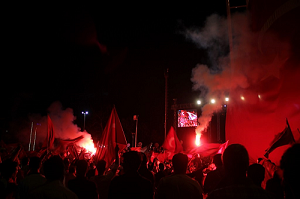Turkey and the West: How Bad is it?
By Suat Kınıklıoğlu
October 13, 2017
The U.S. suspension of visa services in Turkey is an indication of the depth of the fissures between the West and Turkey. While Turkish bureaucrats are trying to maintain functioning relations with the West, there are growing calls in Washington, Ankara and Berlin to redefine Turkey policy. Is Turkey headed for an incremental divorce with the West?
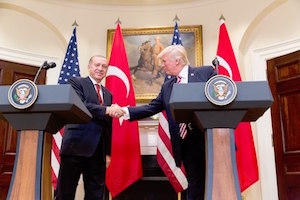
An Uncertain Future for the Turkish Armed Forces
By Lars Haugom
September 26, 2017
The secularist identity of the Turkish armed forces is being dismantled in piecemeal ways by the AKP government. There is a risk that the comprehensive changes that are now underway will further exacerbate ideological and political factionalism within the officers’ corps. Ultimately, the politicization of the military and the attempts at its traditional, secularist ethos could provoke a crossing of swords between religious-conservative and secularist factions. Since the coup attempt last year, President Recep Tayyip Erdoğan has taken steps to ensure the loyalty of the current military leadership, while guarding against the possibility of a more politically assertive military leadership in the future. However, it is uncertain if this strategy is also going to restore the internal cohesion of the Turkish armed forces.
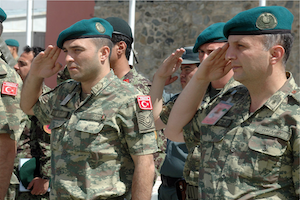
Sounds, Silences and Turkey's Crumbling Core
By Gareth Jenkins
September 19, 2017
Since the failed coup of July 2016, Turkey’s spiralling descent ever deeper into authoritarianism has been characterized by arbitrary arrests and widespread abuses of even the draconian powers afforded the regime under the continuing State of Emergency. In addition, the government’s domination of the media has meant that, for the mass of the Turkish public, the reality of what is happening in the country is submerged beneath a cacophony of distortions, delusions, untruths and febrile conspiracy theories.
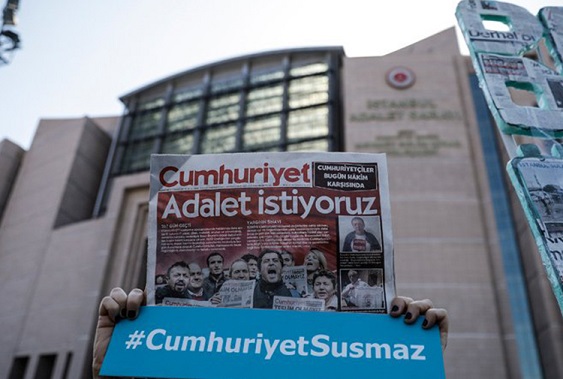
Turkey Fifteen Years After: The AKP regime's power as context shaping
By Toni Alaranta
September 1, 2017
After fifteen years of Islamic-conservative state transformation, it is increasingly difficult to unmake the ideological-material powerbase that keeps the AKP in power. The state transformation project in Turkey has not only changed the circumstances within which any opposition group needs to operate, it has also, to a large extent, started to change the very language that can be used while addressing the most essential socio-political issues. One of the most explicit indications of the AKP’s ability to redefine the sociopolitical horizons is the worrisome lack of Western-inclined forces in Turkey. The Kemalist circles are arguably excessively nationalist. However, they, unlike the liberals, at least have a relatively coherent constituency and ideology for mass mobilization. And the liberals cannot hope to succeed in building a democratic society without a direct backing from some type of nationalist-inclined mass movement.
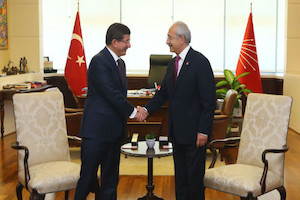
Ticking Clocks: Erdoğan and Turkey’s Constitutional Referendum
By Gareth H. Jenkins
March 31, 2017
Whatever the outcome, the Turkish constitutional referendum on April 16 will not resolve the country’s chronic domestic instability, heal its deepening social divisions, revive its flagging economy or end its growing international isolation. But it will shape both the nature of the further turbulence to come and the duration of what is already the final stage of the Erdoğan era.
